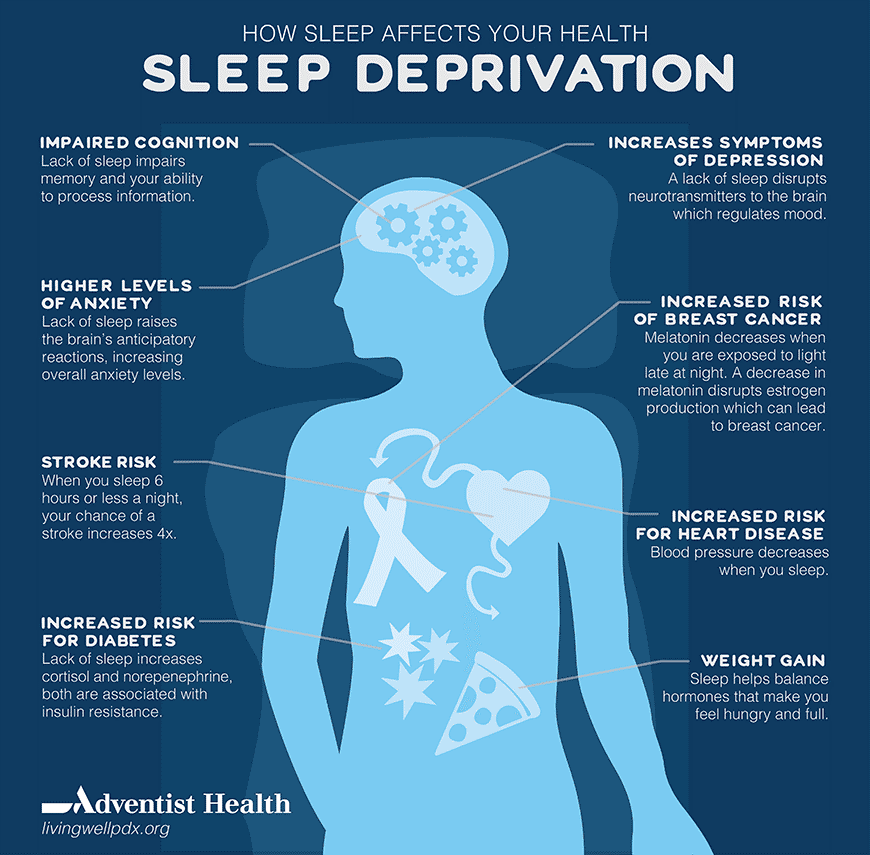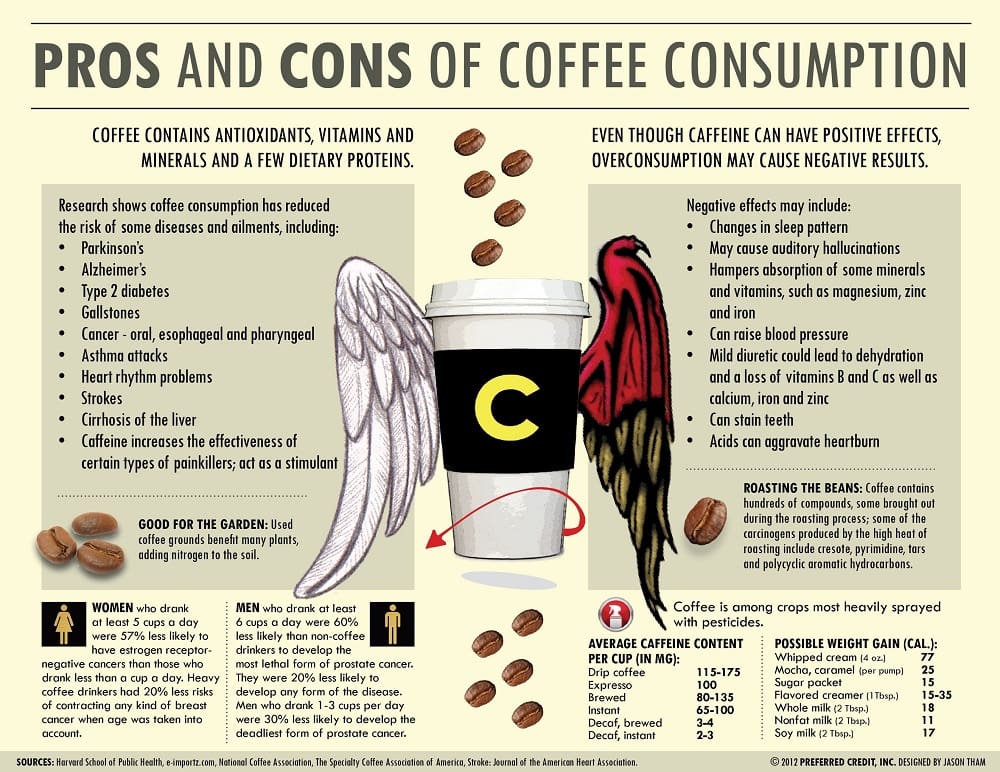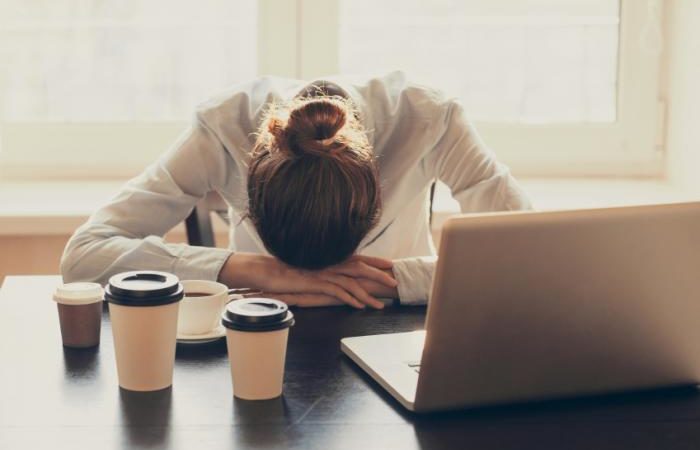We’ve all heard the phrase, ‘you can sleep when you’re dead.’ However, in practice, it is a mantra that could lead to career suicide. Working long hours; pushing yourself late into the night and rising in the early hours can be utterly disastrous for your health and productivity.
As per the Division of Sleep Medicine at Harvard Medical School, the bursts of productivity increase attributed to skipping or cutting short your sleep to work are quickly countered by low moods, the inability to focus and being unable to gain access to higher brain functions, which are necessary to work at your best, for days afterward.
In fact, severe sleep deprivation is found to affect the body so profoundly that even someone under the influence of alcohol may be able to outperform them.
Why Enough Sleep Is Necessary to Perform…
We all know that sleep is good for your body and your mind, but new research from the NIH suggests that your brain cells also benefit from periods of reduced activity.
The study found that when you sleep your brain breaks down toxic proteins from neurons that are produced as a result of neural activity whilst you’re awake.
However, your brain can only remove these troublesome critters while you’re asleep. So if you aren’t getting enough sleep, these toxic proteins remain in your brain cells, thereby reducing your cognitive and physical abilities.
Choosing to forgo sleep has knock-on effects in every department. It restricts your ability to process and act on information, reduces creativity and sends your anxiety and emotional reactivity levels soaring.
What Sleep Deprivation Does to Your Long-Term Health…

Sleep deprivation has long been associated with a wide array of health concerns; heart attacks, strokes, type 2 diabetes and obesity are all linked to not getting enough shuteye.
This is caused by the body’s overproduction of the stress hormone, cortisol when the body is unable to recharge. Excess cortisol can cause some severe damage to your immune system, and cause premature ageing, as the hormone breaks down collagen, the very thing that keeps your skin smooth.
Sleep deprivation also drives hunger and obesity, as it increases the appetite-stimulating hormone ghrelin and reduces the hormone leptin, which helps you to feel fuller.
How Much is Enough?
Most of us require about 7 to 9 hours of sleep each night to feel adequately recharged. Very few people are at their best with fewer than 7 hours. This blog explains how much sleep you need in a little bit more detail.
It’s estimated that 1 in 3 aren’t getting the requisite sleep they need – often due to underlying health concerns.
For entrepreneurs and business people the figure is even worse. A recent Inc. 500 survey found that CEOs are averaging more than 2 hours less sleep than their employees.
What Can You Do About It?
Putting aside the obvious health benefits of sleeping well, your ability to keep emotions in check and remain calm under strain has a consequence on your working life and your ability to progress.
There are many habits and rituals that we pick up during our working lives that could potentially be harming your ability to get the best night’s sleep.
I’ve covered some of the most common to help you break habits and get the right quantity and quality of sleep you need.
Ditch the Pills
Sleeping pills seriously affect your brain’s natural pattern and therefore your sleep quality. As mentioned above, sleep allows the brain to remove the natural build-up of toxic material. It moves through a series of complex cycles, which eliminate or store memories and the general events of the day.
Sedation interferes with these cycles and alters the natural flow of your brain functions. Anything that alters the delicate ecosystem in your body really won’t help the quality of the sleep you’re experiencing.
Limit the Caffeine

Caffeine, as we’re probably all aware, is a stimulant. It works by producing more adrenaline and cutting off the naturally occurring sleep-induction chemicals in your brain.
Caffeine has a 4-6 hour half-life, which, on reflection means it takes a full day to leave your system. If you have a cup of coffee at 8 am, for example, you’ll still be carrying 25% of the caffeine in your body by 8 pm. Anything you consume after midday will be close to 50% by bedtime, which can make it hard to fall asleep.
Caffeine also affects the standard of your sleep, by reducing REM sleep – the deep, highly beneficial sleep – slowing down your recuperation time.
Consistency
Consistently waking at the same time is the key to a good night’s rest. Waking up at the same time daily improves your mood and trains your body. When you’re used to waking up at the same time each day, your brain moves through the cycles, preparing your body for your usual wake up time.
About sixty-minutes, before you open your eyes, your hormone levels gently increase, as does your body temperature and blood pressure, which helps you feel more awake and alert; preparing you for the stress of waking up.
When you can’t wake up at the same time each day, your brain can’t predict when you’re about to wake up, and this process is thrown into a state of flux.
This means the body can’t produce the cocktail of hormones to prepare you for the day, which contributes to sleepiness and a lack of awareness at work.
Learn to Stop
When you work late into the evening, it stimulates your alert phase, when you should be winding down and preparing your body for sleep. It’s easy to check emails or do little things, but they add up to potential burn out.
Your body and your mind need to rest in order to reorganise, prepare and refocus for the day ahead. The inability to do this means that you’re sacrificing work based productivity for an extra few hours of work at home.
Takeaways
It’s probably the case that you know some intrepid, young entrepreneur who is up all hours working and making a killing.
And it may be the case that in the short term they find sleeping less and using this time to work is giving them a slight advantage. However, in the long run, this advantage will be quickly diminished as performance falters and the quality of their work runs aground.
We all have different ideas of how much sleep we need to perform at a high-level, and if you are consistently coming in under that amount, you can’t possibly do your very best, and in fact, you could be killing your career.





